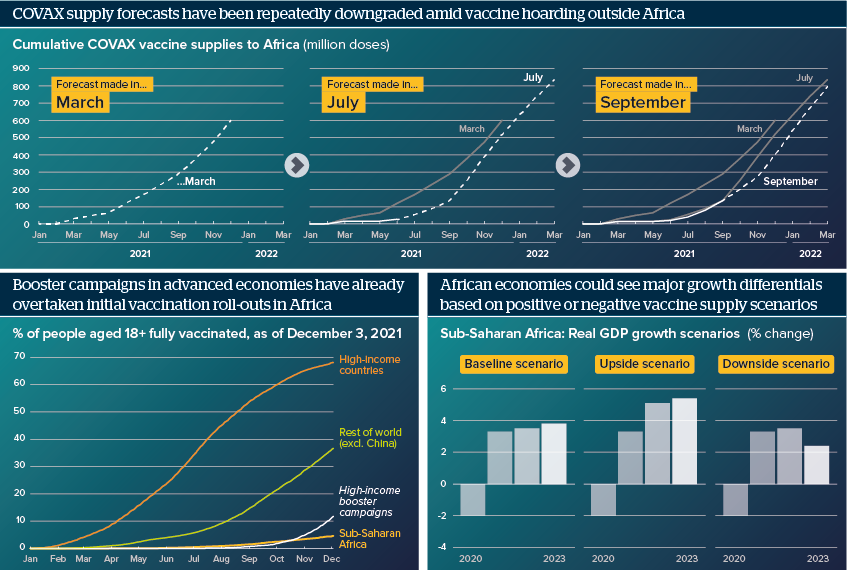Omicron’s emergence may hurt African economies
Omicron’s arrival has renewed fears of an extended crisis and prompted a reversion to self-interested pandemic politics
Source: GAVI; World Bank; Our World in Data
Outlook
The advent of the Omicron COVID-19 variant has brought with it a flurry of travel restrictions targeting African nations, as well as a spike in announcements of new, expanded or accelerated vaccination booster campaigns in advanced economies.
Both have potential to undercut recoveries across Sub-Saharan Africa, where the economic impacts of the pandemic have so far been worse than the health impacts. Extended pandemic-related restrictions are a real risk, especially if already struggling vaccination campaigns are slowed further by renewed vaccine demands in the developed world. This could shave around 1.6% off the continental growth forecast by end-2023.
In contrast, improved vaccine supplies and faster-than-expected easing of restrictions could boost growth by 1.5% in 2022 and another 1.6% in 2023.
Impacts
- The detection of Omicron in Africa may elevate fears that low continental vaccination rates could allow more new variants to emerge.
- An overly rapid or disorderly vaccine supply glut could overwhelm capacities to deliver inoculation programmes.
- African tourism sectors will be especially vulnerable to new shocks and ongoing risks from negative perceptions of low vaccination rates.
- Major disruptions to education may exacerbate the negative medium-to-long-term socio-economic impacts of the pandemic.
See also
- Boosting Africa’s health security will be challenging - Dec 13, 2021
- US-Africa trade policy will tread a beaten path - Dec 9, 2021
- Africa’s vaccine deficit presents risks of variance - Sep 10, 2021
- More graphic analysis
